SRCA was honored to receive the invitation from the Commerce Department of Gansu Province to co-host the 8th China Hexi Corridor Organic Wine and Tourism Festival on September 18-20th.
We figured that as one of the main producing areas of Chinese wine grapes Hexi Corridor is the golden passage of the ancient Silk Road. It is also the earliest cultivated grape region in China. It began grape plantation and processing from the Han Dynasty more than 2,400 years ago. The well-known “Ye Guang Bei” is a reminder of the longevity of Hexi Corridor wine culture. Hexi Corridor is located between 36 and 40 degrees’ north latitude. It is endowed with the best combination of light, heat, water and soil resources for producing high-quality grapes, especially wine grapes. At present, the winegrowing area of the producing area has reached 31,100 square meters, ranking third in China, and the wine production capacity has reached 139,000 tons annually. Its markets cover 31 provinces, autonomous regions and municipalities as well as overseas markets such as Japan, South Korea, Malaysia, Hong Kong and Taiwan.
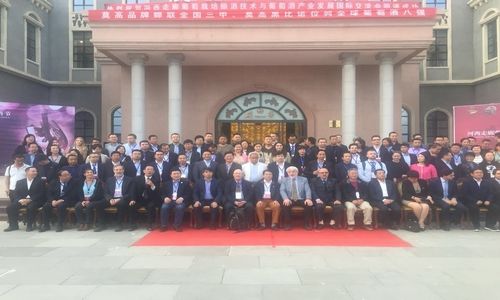
The 8th China· Hexi Corridor Organic Wine and Tourism Festival was held from September 18 to 21 in Wuwei City, Gansu Province. The Festival was hosted by the Commerce Department of Gansu Province, the People's Government of Wuwei city, the Wine Industry Association of Gansu Province and the Silk Road Cities Alliance.
Our journey started on September 17th, when our delegation, led by the Commercial Counselor at the Embassy of Albania Mr. Eduard Molla, headed to Gansu Province. 2 hours’ flight from Beijing to Lanzhou and 3,5 hours’ car ride brought us directly to a welcoming dinner and wine tasting in Wuwei city. “Wuwei is a nationally known tourism destination in China. Beautiful sights, house farms and wine bases attract the attention of the visitors worldwide”, - the Deputy Director-General at the Commerce Department of Gansu Province Ren Fukang opened the ceremony. He continued saying that Gansu Province achieved remarkable results in promoting the wines of the region, nevertheless the big goal of the Department of Commerce at the moment is increasing the income in the wine industry. Exactly that’s why it’s vital to bring the wine experts from abroad to enhance the quality of the production, promotion, distribution and sells.
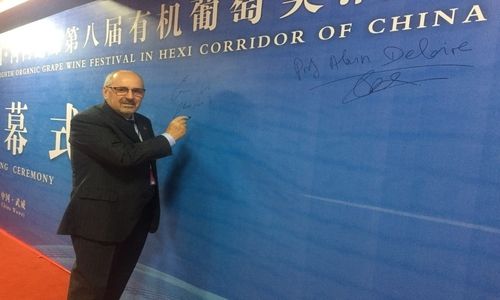
Among the distinguished guests were: Eduard Molla (Commercial Counsellor at the Embassy of Albania in China), Andreas Pierotic (minister counselor for economic and commercial affairs at the Embassies of Chile in China), Professor Michael A Keller and Dr. Rebecca Dolan from the University of Adelaide in Australia, Julio Alonso (Director of Wines of Chile Asia), Robert James Geddes (Australian Wine Master, Wine Consultant), Derek Dylan Way (Partner Agricultural Technical Consultant at Xi'an De Bei Technical Agricultural Consulting), Professors Alain Deloire and Anne Catherine Pellegrino from France as well as representatives of the wine industry from Argentina, Belorussia and Ukraine.
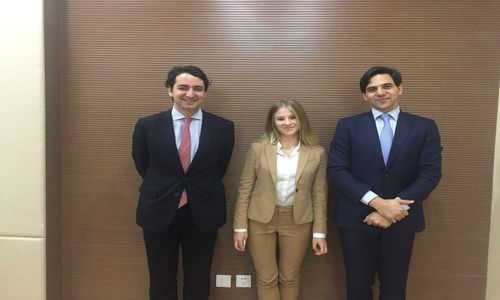
The invitees carefully listened to the welcoming speeches of the government and business representatives from the area. The wines of Gansu started to come up on the tables very quickly. Overall the guests tasted as many as 19 kinds of wine: dry or sweet, Merlot or Sauvignon – everyone found something regarding the one’s preferences.
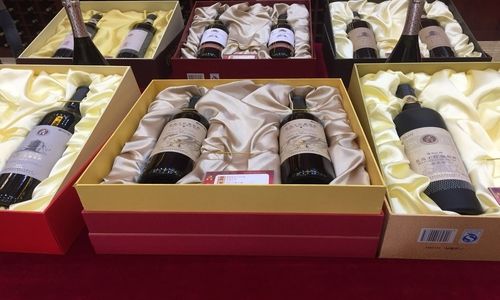
Worth to mention that the area around Wuwei is rich with the organic grape planting bases and, actually, wineries of the biggest wine brands in China. The Hexi Corridor from east to west has successively built 19 wine production enterprises, including Mogao, Qilian, Zixuan, Guofeng, Huangtai, Weilong of Gansu Province, Mogaoku of Dunhuang, Yangguang of Dunhuang, TenglinZiyu, 38DU, Tianyu, Hongqiao, Xiangming, Lishi aifang, Yinuo etc. On the second day of the trip, we visited several vineyards and fascinating wine chateaus. Among them, we would like to specially emphasize the Gansu Mogao Industrial Development Co. and Gansu Weilong Oufeibao International Wine Co. The first one is a leading Chinese wine production company, which has six branches and four subsidiaries with agricultural industrialization. At present, Mogao Company built a 20,000 square meters vineyard and a liquor storage with 50,000-ton capacity in Wuwei and a high standard, multi-functional and artistic Mogao International Winery in Lanzhou. With the investments of 300 million yuan, Gansu Weilong Oufeibao International Co. has built the wine castle of 100,000 tons, which covers an area of 270,000 square meters and a construction area of 100,000 square meters, has 200 sets of production equipment, two automatic production lines, 400,100 fermentation tanks, 600,150-ton wine storage tanks.

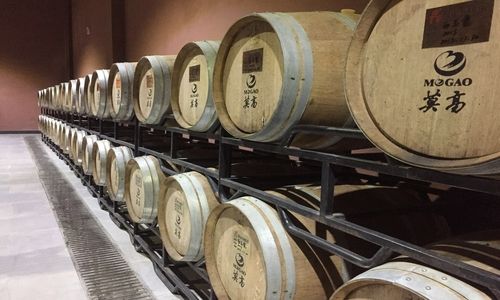
In the morning on September 19th, the Wine Festival Opening Ceremony and the Liangzhou Culture Forum were held, followed by the International Symposium on Viticulture and Enology in the afternoon. The speakers from all over the world shared the ideas of how to improve the quality of the wine production in Gansu Province and increase the income in the industry. Let’s express some of their thoughts.
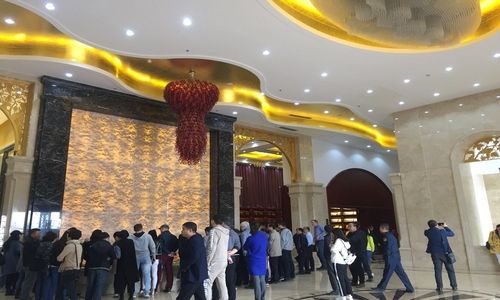
Mr. Alain Deloire offered to dig deeper into the science of growing the plants. According to him, it is possible to impact the quality and amount of harvest at each growing stage.
Mr. Robert James Geddes told us how to cope with the tremendous heating (for instance, in Australia), that negatively impacts the harvest. The best methods are: encouraging Canopy growth to shade the exposed fruit, modifying fruit wires, baring inter-row vineyard to lower effect of radiation, integrating of Mulch and Inter-row Swards or Cover Crop. Besides, he gave Gansu producers some concrete advice on the promoting the industry "Bring world competition leaders to judge the wine in Gansu and increase the value of your wine in the eyes of KOLs in the field."
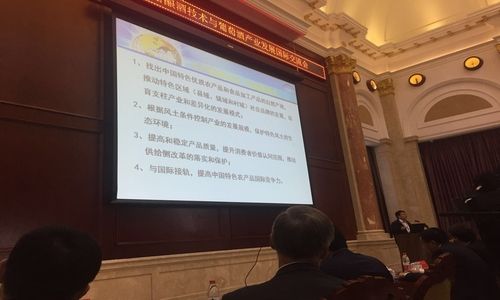
Anne Catherine Pellegrino was talking about the impact of the temperatures on the growing grape. Among the technics that she stressed were: the Field.. fluctuating weather, building whole-canopy chambers, integrating controlled conditions and the Microvine model system.
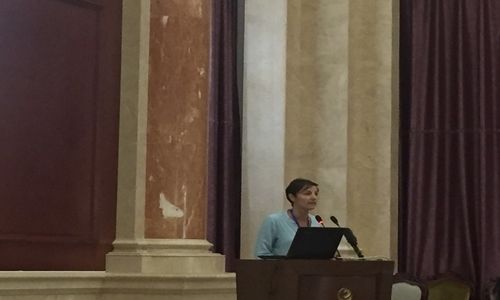
Overall, the organizers also took care of the entertainment part. The guests were pleasantly surprised by various cultural activities including a chant ‘Liangzhou poem’ chorus, “Horse stepping flying swallow” stage performance, Chinese calligraphy and photography exhibitions, sales of traditional food and cultural tourism souvenirs, etc.

The trip has come to an end, but within those four days we made many friends internationally, which means wherever we go – we have a chance to meet them once again.